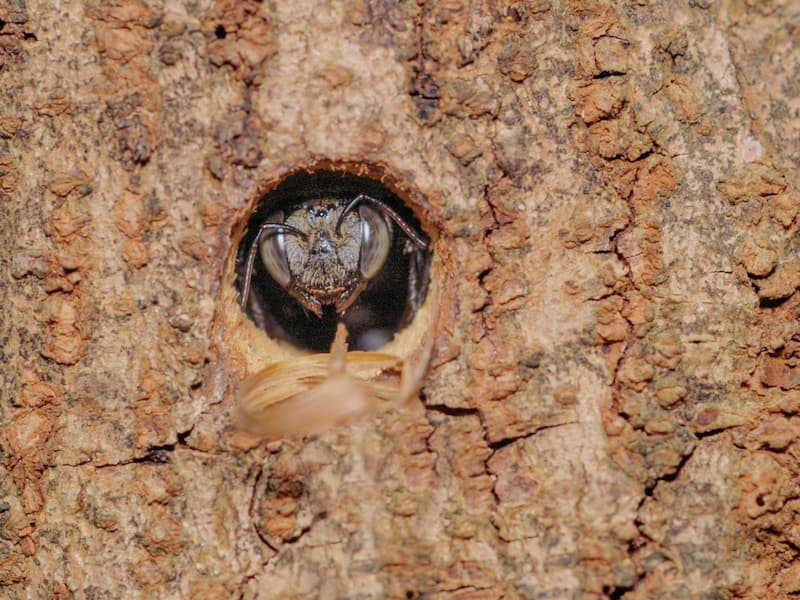Like many other insects, wasps act in certain ways because of their biology and their surroundings. Some species of wasps are diurnal, which means they are most active during the day. Other wasp species, on the other hand, are active at night. Let’s learn more about the interesting world of wasp behaviour by asking if these stinging bugs are busy at night.
Daytime Wasps:
Most kinds of wasps are active during the day. In other words, they are busiest during the day and sleep at night. Foraging for food, building nests, taking care of their colonies, and protecting their area is what they do during the day. Yellowjackets, paper wasps, and mud daubers are all common wasps that come out during the day.
At night, wasps:
Most wasps are active during the day, but some species are active at night. Wasps that are active at night, also called crepuscular wasps, are most busy at dawn and dusk. These species have changed over time to find a place to live where daytime insects don’t bother them as much. They have changed in order to be able to find their way and hunt effectively in low light.
The European hornet is a well-known example of a wasp that comes out at night. The late afternoon and evening are when these big, strong wasps are most likely to be seen. They make paper houses in hollow trees and other dark places where they can hunt for food at night.
What Makes People Act at Night:
Nocturnal wasps have changed the way they act because of several things:
- Less competition: Most insects that are active during the day, like other wasp species, fight for food and resources during the day. At night, wasps can get to supplies without having to compete with a lot of other wasps.
- Low Risk of Predation: Fewer predators are out at dawn and dusk, so nocturnal wasps are less likely to be eaten while they are out searching for food.
- Ideal Temperatures: Wasps can take advantage of cooler temperatures when they hunt at night. They can stay out of the sun during the day, which is especially helpful in dry places.
- Adapted Senses: Because they are active at night, wasps have better eyesight that helps them see in low light. Their complex eyes can see better in low light, which helps them find and move through the environment quickly.
Do You Need to Worry?
Wasps that come out at night are usually less of a bother than wasps that come out during the day. Wasps that come out at night can get mean when they have to defend their nests, which is why they often sting people when they are outside. Nocturnal wasps are less likely to be seen during the day, but you should still be careful if they’ve set up a nest near a place where people are likely to be.
How to Get Rid of Nocturnal Wasps:
If you think there is a wasp nest near your home or where you like to be active at night, you should call a professional pest control service. If you don’t have the right information and tools, removing a wasp nest can be dangerous and not work at all, especially at night.
As a conclusion:
Wasps are a broad group of insects that do a lot of different things. Most of them are active during the day. But some species of wasps have developed to be active at dawn and dusk. These are called nocturnal or crepuscular wasps. These animals have developed special traits that help them do well in low light, staying out of harm’s way while hunting efficiently. Even though they aren’t as annoying as daytime wasps, you should still be careful and get professional help if you think there is a nest near your home, no matter what time of day they are active. Homeowners can live with these bugs more safely and happily if they understand how they do these complicated things.
Wasp Control Newmarket, We understand that wasps serve a vital role in our ecosystem as beneficial and visually striking insects. They contribute to pollination, control pests, and typically carry out their tasks without causing disruptions to humans.
